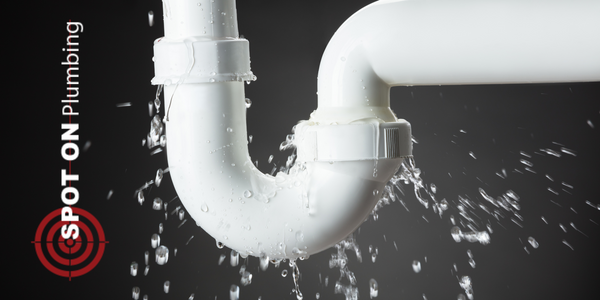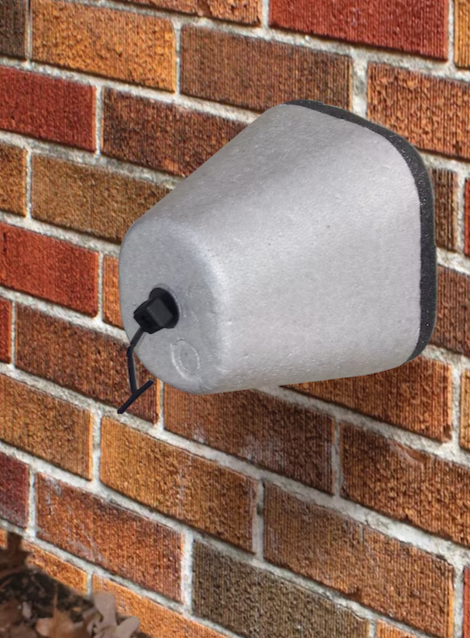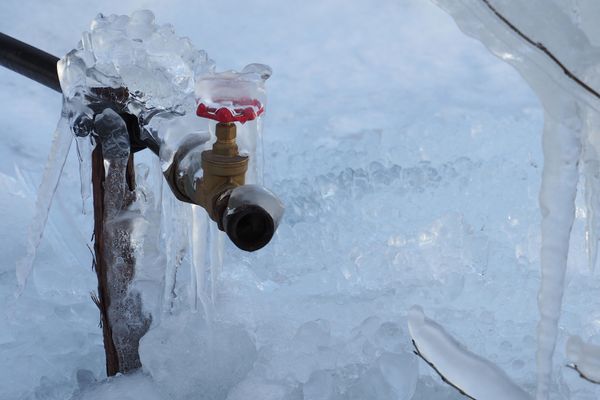Winter weather can be rough on your home, especially your plumbing. When temperatures drop below freezing, your pipes are at risk of freezing, which can lead to costly damage if left untreated. Recognizing the signs of frozen pipes early can save you from a stressful and expensive situation. Let’s walk through the warning signs, how to tell if a pipe has burst, and what you can do to prevent it from happening in the first place.
Signs of Frozen Pipes in Your Home
Hayden Jeffries

Signs of Frozen Pipes
Not always obvious when a pipe in your home has frozen, so knowing what to look for can make all the difference. Here are the common signs to keep an eye out for:
- No Water or Slow Trickle: Turn on your faucet, and if no water comes out or it’s just a slow drip, you might have a frozen pipe. This happens because the ice blocks the flow of water.
- Frost on Pipes: If you can see exposed pipes, check for frost or icy buildup. Frost is a clear sign that the pipe’s temperature has dropped too low.
- Whistling or Banging Noises: Strange sounds like whistling or banging can mean ice is blocking the flow of water, creating pressure in the pipe.
- Foul Odors: If you notice a bad smell from your drain or faucet, ice might be blocking odors from escaping the pipe.
Spotting these signs early is key to avoiding bigger problems. If you are unsure, call an emergency plumber in Broken Arrow. Spot On Plumbing can help diagnose and fix the problem before it gets worse.
Signs of Burst Pipes
If a pipe freezes, there’s about a 50% chance it has already cracked or burst. A burst pipe can cause significant water damage in your home, so it’s important to know what to look for:
- Bulges or Cracks in Pipes: If you notice a bulge or crack in a pipe, it may mean there is a burst. This is especially true if ice is leaking out.
- Damp Drywall or Ceiling Rings: Water damage on your walls or ceilings can signal a leak from a burst pipe. Look for damp spots, water rings, or peeling paint.
- Puddles: If you notice puddles in your home, garage, or basement, it could mean there is a problem. A burst pipe might be leaking water.
- Moving Water Meter: If your water meter is moving when no taps are on, you might have a hidden leak.
A burst pipe can spray many gallons of water in just a few hours. If you see any of these signs, call an emergency plumber right away. Spot On Plumbing is here to help Broken Arrow homeowners handle emergencies like frozen and burst pipes.

Prevention Tips
The best way to avoid the headache of frozen or burst pipes is prevention. Here are some simple, effective tips to protect your home this winter:
Keep the Heat On
Set your thermostat no lower than 55°F, even if you’re leaving town.
Open cabinet doors under sinks to let warm air circulate around pipes.
Leave faucets on a steady stream
Letting faucets served by exposed pipes on a steady stream can keep water moving and reduce the chance of freezing.
Run both hot and cold taps if possible.
Insulate Your Pipes
Wrap pipes in foam sleeves or towels to keep them warm.
Use caulk or sealant to seal cracks or holes where cold air can enter.
Don’t forget outdoor faucets, use foam covers to insulate them.
Use Heating Cables
Install electric heating cables on pipes in unheated areas like basements, attics, or crawl spaces.
These cables automatically turn on when temperatures drop, providing extra protection.
Disconnect Garden Hoses
Drain and store garden hoses before winter arrives.
Shut off water supply lines to outdoor faucets and drain any remaining water.
If you locate your pipes in particularly cold or exposed areas, you should take extra precautions. Better safe than sorry!

What To Do If You Suspect Frozen Pipes
If you think a pipe is frozen, here’s what you should do:
Turn Off the Water: Shut off the water supply to the affected area or the whole house to prevent flooding if the pipe bursts.
Open Faucets: Open the faucet of the frozen pipe to relieve pressure and allow water to flow once the ice melts.
Apply Heat: Use a blow dryer, heating pad, or warm towels to heat the frozen section. Never use an open flame.
Call a Professional: If you can’t find the frozen pipe or reach it, call an emergency plumber for help.
Final Thoughts
Frozen pipes are a common winter problem, but with the right knowledge and preparation, you can protect your home. Watch for signs of frozen or burst pipes. Take steps to prevent these issues.
Don’t hesitate to call a Broken Arrow plumber if you need help. Spot On Plumbing is ready to handle any plumbing emergency, from frozen pipes to clogged drains. Stay warm, stay safe, and keep your plumbing in top shape this winter!
